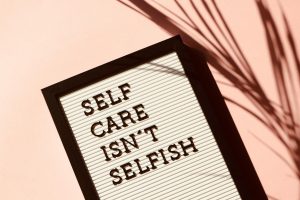Pause and Ponder: Reassessing the Gap Year Decision

By Sibgha A
When I decided to take not just one, but two consecutive gap years, I envisioned a time of self-discovery and exploration. Little did I realise the profound impact it would have on my mental health, academic journey, and personal growth. What began as a quest for clarity soon unraveled into a journey filled with unexpected challenges and valuable lessons. In reassessing my gap year decision, I discovered a deeper understanding of its complexities and the importance of weighing both sides before embarking on such a path.
During my gap year, I encountered several challenges that I believe are important to discuss, as they could help you make decisions about yours.
Mental Health Struggles
The first few months of my gap years were exhilarating — a break from the routine of exams and deadlines. However, as time passed, I found myself grappling with a sense of isolation and uncertainty. Without the structure of academic life, I struggled to maintain a sense of purpose. The lack of daily challenges and goals took a toll on my mental well-being, leading to periods of anxiety and self-doubt. This experience taught me that while a gap year can offer freedom, it also requires a robust plan for maintaining mental health and stability.
Impact on Academic Progress
Initially, I believed that taking a gap year would rejuvenate my academic motivation and provide clarity on my career path. Instead, I found myself falling behind my peers who continued their studies without interruption. Returning to academic life after two years posed unexpected challenges — I struggled to re-adapt to the rigorous demands of coursework and exams. The gap in my academic timeline became a barrier rather than a bridge, highlighting the importance of maintaining academic momentum.
Stunted Personal Growth
In hindsight, my gap years, while intended for personal growth, inadvertently stunted my development. The lack of structured learning and professional growth opportunities meant I missed crucial experiences that could have shaped my skills and career trajectory. While I gained some life experience through travel and exploration, the absence of a focused pursuit left me feeling adrift and unprepared for the competitive job market upon graduation.
Exploring More Cons
Beyond my journey, the cons of taking a gap year extend to broader societal and economic factors. For many, the financial burden of funding a gap year can outweigh its perceived benefits. Moreover, the gap in one’s resume may raise concerns among potential employers, who often value continuous academic or professional engagement. Additionally, the social pressure to conform to traditional educational timelines can lead to feelings of inadequacy or regret among gap year takers.
Conclusion
In reassessing my gap year decision, I have come to appreciate its complexities and the need for thoughtful consideration. While it offered moments of self-discovery, made me persistent, inculcated patience, and gave me temporary freedom, the long-term impact on my mental health, academic progress, and personal growth was profound. If considering a gap year, it is crucial to weigh the potential drawbacks alongside the benefits. The decision should align with your personal goals and aspirations, ensuring it contributes positively to your journey rather than becoming a detour from it.






